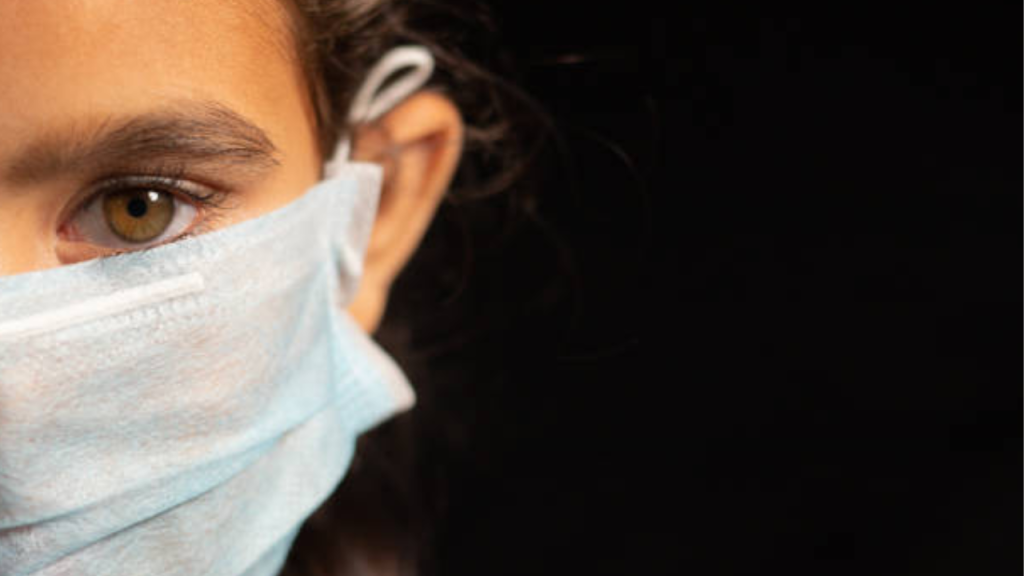Fears are growing over the Chandipura virus (named after the village in Maharashtra, India where it was first identified), which has claimed the lives of 15 children in Gujarat in just a few days, with the number of people infected by the virus rising to 29.
“Since a child’s immune system is less developed than an adult’s, they may not be able to fight off the virus,” says Dr Shreya Dubey, consultant, neonatology and paediatrics, CK Birla Hospital, Gurgaon, blaming misinterpretation of symptoms as one of the main reasons for the fatal outcome of infection in children.
“The virus causes encephalitis – inflammation of the brain – which can rapidly progress to severe neurological symptoms,” she said, adding that there is no specific antiviral treatment for Chandipura virus, so supportive care is essential but often insufficient in severe cases.
Beware of SandfliesSandflies, particularly the species Phlebotomus papatasi, act as vectors for Chandipura virus, and these sandflies transmit the virus from infected hosts to humans.
“To reduce your risk of infection, people should avoid sand fly bites, apply insect repellent to exposed skin, wear long sleeves, and use a mosquito net when sleeping, especially in areas where sand flies are common,” recommends Dr Dubey.
Chandipura Virus Infection: Early Symptoms to KnowSymptoms of Chandipura virus infection can be rapid and may appear suddenly. Key signs and symptoms are sudden onset of high fever, severe headache which is a common complaint from patients, frequent vomiting, convulsions or seizures, and neurological signs such as loss of consciousness, agitation, confusion, and drowsiness.
Chandipura Virus Infection: How to Stay Safe?Remove standing water sources and clean vegetation around habitat to reduce sandfly breeding sites.
Inform local people about the habits of sandflies and the importance of preventive measures.
If your child shows symptoms such as vomiting, headache or fever, seek medical attention immediately.
Pay attention to treatment and prevention recommendations from your medical professional.
“Approved vaccination is essential to prevent Chandipura virus infection. Once developed and widely available, a vaccine can protect vulnerable groups, especially children, and significantly reduce the spread of this deadly disease,” said Dr Dubey.
“Since a child’s immune system is less developed than an adult’s, they may not be able to fight off the virus,” says Dr Shreya Dubey, consultant, neonatology and paediatrics, CK Birla Hospital, Gurgaon, blaming misinterpretation of symptoms as one of the main reasons for the fatal outcome of infection in children.
“The virus causes encephalitis – inflammation of the brain – which can rapidly progress to severe neurological symptoms,” she said, adding that there is no specific antiviral treatment for Chandipura virus, so supportive care is essential but often insufficient in severe cases.
Beware of SandfliesSandflies, particularly the species Phlebotomus papatasi, act as vectors for Chandipura virus, and these sandflies transmit the virus from infected hosts to humans.
“To reduce your risk of infection, people should avoid sand fly bites, apply insect repellent to exposed skin, wear long sleeves, and use a mosquito net when sleeping, especially in areas where sand flies are common,” recommends Dr Dubey.
Chandipura Virus Infection: Early Symptoms to KnowSymptoms of Chandipura virus infection can be rapid and may appear suddenly. Key signs and symptoms are sudden onset of high fever, severe headache which is a common complaint from patients, frequent vomiting, convulsions or seizures, and neurological signs such as loss of consciousness, agitation, confusion, and drowsiness.
Chandipura Virus Infection: How to Stay Safe?Remove standing water sources and clean vegetation around habitat to reduce sandfly breeding sites.
Inform local people about the habits of sandflies and the importance of preventive measures.
If your child shows symptoms such as vomiting, headache or fever, seek medical attention immediately.
Pay attention to treatment and prevention recommendations from your medical professional.
“Approved vaccination is essential to prevent Chandipura virus infection. Once developed and widely available, a vaccine can protect vulnerable groups, especially children, and significantly reduce the spread of this deadly disease,” said Dr Dubey.


